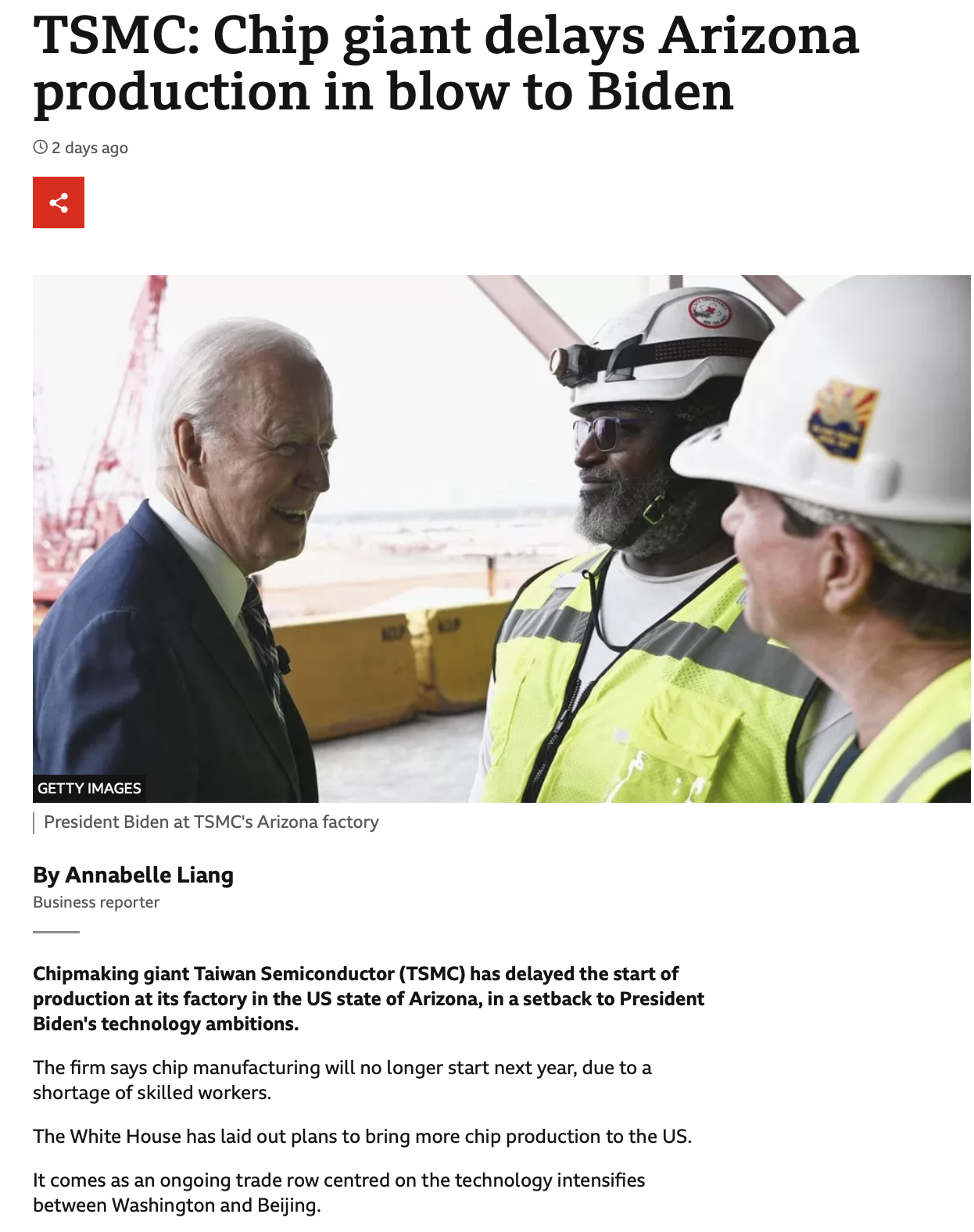Joe Biden Triggers Paralysis in the Production of Strategic Semiconductor Chips. Worldwide Collapse of the Automobile Industry?

Semiconductors constitute a strategic commodity, used in a variety of sectors including electronics, medical devices, electronic and communications networks etc.
There is evidence of manipulation, which has led to artificial shortages of semiconductors affecting a number of key sectors of the global economy.
There are geopolitical implications: US Confrontation with China engineered by the White House.
The Automobile Industry
From one day to the next starting in 2020, Japan’s automobile industry enters a period of prolonged crisis.
The automobile industry experienced a decline in production of 15% in 2020 largely due to an engineered shortage of semi-conductors. A much larger decline was experienced in 2021, affecting production in Japan, South Korea, China Western Europe and North America.
“Automakers, which rely on dozens of chips to build a single vehicle, have been particularly hard hit, forced to halt production lines globally as they await chip supplies. The debacle is likely to cost the auto industry $450 billion in global sales … In September 2021 Toyota was forced to slash production at 14 factories in Japan over a lack of semiconductors. Some of the cuts will continue into October due to a lack of components from Southeast Asia, Toyota has said.” (Washington Post, September 2021)
A recent report confirms that all automobile companies have been affected:
Across the entire industry, an estimated 7.7 million fewer vehicles were produced in the same year-on-year period. This corresponds to a monetary value of about 210 million USD. Due to the complexity of the production chains described above, it will take time even after production capacities have recovered until output in the automotive industry is at pre-crisis level once again.
Semiconductor Chips
The World’s largest semiconductor producer –which over the years has been routinely trading and collaborating with China– is Taiwan Semiconductor Manufacturing Company (TSMC).
Joe Biden’s intent is to paralyze Taiwan’s trade and investment relations with the PRC. In what amounts to a strategic decision, the White House ordered Taipei to implement the Relocation of the TSMC plant to Arizona.
As the biggest maker of chips that power everything from phones to cars to missiles, the company is strategically important with highly coveted technical know-how. But caught in a deepening battle between the United States and China over technological leadership
In fact there is also an unspoken battle between the Biden Administration and the Taiwan owners of TSMC which started manufacturing in mainland China in 2004.
“Two out of 18 TSMC plants are located in China — the vast majority of the factories are still in Taiwan.”
TSMC is not intent upon reducing its activities in Mainland China.
Joe Biden’s decision to transfer TSMC to Arizona has essentially led to the paralysis of the Arizona plant which is now slated to start production in 2025, while also destabilizing TSMC’s revenues and productive capabilities in Taiwan.
Has this contributed to weakening TSMC’s relations with the PRC?

Chipmaking giant Taiwan Semiconductor (TSMC) has delayed the start of production at its factory in the US state of Arizona, in a setback to President Biden’s technology ambitions.
On July 20, 2023, TSMC Chairman Mark Liu said production of advanced microprocessors at its Arizona factory in the south west of the US would now begin in 2025.
The company said its profits fell by around 23% to 181.8bn Taiwanese dollars ($5.8bn; £4.5bn) in the three months to the end of June, compared to the same time last year.
The political standoff between Biden and TSMC, affects supply lines of semiconductors in the US and Worldwide. It potentially destabilizes large sectors of the global economy.
“the world chip shortage has already affected 169 industries, and we’re not talking about electronics anymore. Industries like steel and concrete production and even soap manufacturing are already affected”.
Is there a hidden agenda on behalf of the Financial Establishment?
The March 2020 lockdown measures have been conducive to process of corporate bankruptcies affecting major sectors of the real economy. In turn, the engineered shortage of semiconductor chips has precipitated the decline of major automobile companies, which at some later stage will be appropriated by powerful financial interests.


